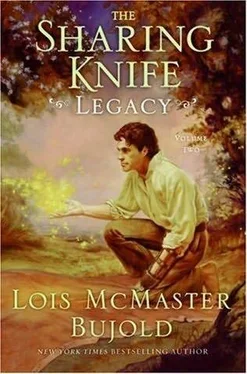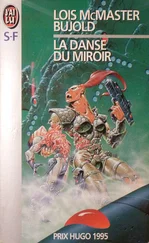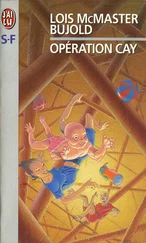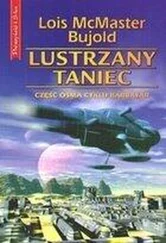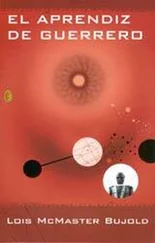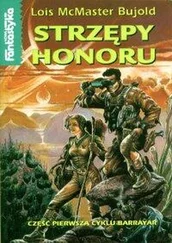“There!” said Dag in a satisfied voice, standing back and regarding the results. “Tent Bluefield!”
Fawn thought it looked more like Pup-Tent Bluefield; it made the other cabins seem positively palatial. She ventured near and peered in dubiously. It’s all right, I’m just temporary, the tent seemed to say of itself. But temporary on the way to what?
Dag followed, looking down at her a shade anxiously. “Many’s the young couple who starts with no more,” he said.
Likely, but you aren’t young. “Mm,” said Fawn, and nodded to show willing. There was space inside for a double bedroll and a few possessions, but little else. At least the stubby apple tree was not likely to drop lethal branches atop.
“Don’t lay anything out in it yet—let the ground dry a while more,” said Dag. “We’ll get reeds for bedding, rocks for a fire pit, maybe do something for flooring.” He strode back to the clearing and collected a pair of short logs, hooking up the smaller and rolling the larger along with his foot, and set them upright beneath the awning for seats. “There.”
Excited by this novelty, the little girl Tesy went inside and pranced and danced about, singing to herself. Truly, the tent seemed more playhouse-sized than Dag-sized, though the curved roof would allow him to stand upright, barely. Sarri made to call her daughter back out, but Fawn said, “No—let her. It’s a sort of house blessing, I guess,” which earned her a grateful and suddenly shrewd look from Sarri.
“If I might borrow your husbands once more,” said Dag to Sarri, “I thought we’d go get my things before I take the cart back.”
“Sure thing, Dag.”
“Mari”—his gaze seemed to test his patrol-leader-and-relative’s willingness—“maybe you could show Fawn around while we’re gone?”
Implying, among other things, that Fawn was not invited on this expedition. But Mari nodded readily enough. It seemed Fawn was to be accepted by this branch of Dag’s family, at least. If temporarily, like the tent. The three men went off with the cart, not altogether unloaded, as both children immediately scrambled atop for the ride. Or rather, Tesy scrambled up, and her little brother wailed in dismay till Razi popped him aboard with her.
“It’s normally a bit livelier than this,” Mari told Fawn, who was gazing around the clearing. “But as soon as I got back from patrol and could take charge of Cattagus, my daughter took her family across to Heron Island to visit with her husband’s folks. They’re building a new boat for her.” A wave of her hand indicated the third cabin as belonging to this absent family. Was the daughter Mari’s name-heiress? What else did Lakewalkers inherit, if they did not own land? Besides their fair share of malices. Was this site apportioned out like tents and horses from some camp pool?
Mari, with Sarri trailing in silent curiosity, took Fawn out back and showed her where the privy was hidden among the trees: not a shed but a slit trench with a hide blind, very tentlike. Water was drawn from the lake, and kettles kept permanently on the hob to boil that intended for drinking. Inside Mari’s cabin, Fawn saw that the fireplace had a real oven, which she eyed enviously. Lakewalker women were not limited to pan bread cooked over an open fire, evidently. Though it seemed futile to ask to borrow the oven when Fawn owned no flour, baking pans, lard, butter, eggs, milk, or yeast.
Against the wall in Sarri’s cabin stood a simple vertical loom loaded with work in progress, some tough-looking tight-woven fabric Fawn recognized from Lakewalker riding trousers. Fawn wondered at the thread; Sarri explained it was from the ever-useful plunkin, the stems of which, when retted, yielded up a long, strong, durable fiber, which accounted for the retting cradle in the lake. Fawn didn’t see a spinning wheel. Little furniture met her eye, apart from some trestle tables and the common upended-log seats. There were no bed frames inside at all; by the bundles of bedding stacked along a wall, it seemed Lakewalkers slept in bedrolls even at home, and Fawn realized why Dag had taken so happily to the floor of Aunt Nattie’s weaving room.
They went outside again to find that Dag and the cart had returned. Besides their saddles and bridles, a sword in a worn leather sheath, and a spear, it held only one trunk.
“Is this all you have?” Fawn asked him, as he set it all in a pile beside the tent for later stowage. The trunk hardly seemed large enough to contain, for example, surprise kitchen tackle. It barely seemed large enough for spare boots.
Dag stretched his back and grimaced. “My winter gear’s in storage at Bearsford.”
Fawn suspected it amounted to little more.
He added, “I also have my camp credit. You’ll see tomorrow how that works.”
And he was off again, dragging the emptied cart with his hook.
“What shall I do?” Fawn asked rather desperately after him.
“Take a rest!” he called unhelpfully over his shoulder, and turned onto the road.
Rest? She’d been resting, or at least, traveling, which while not restful was certainly not useful work. Her hand traced her wrist cord, and she looked up at the two Lakewalker women, looking down—dubiously? — at her. Sarri’s cord, she saw, was two cords wrapped around each other.
“I aim to be a good wife to Dag,” Fawn said resolutely, then her voice wavered. “But I don’t know what that means here. Mama trained me up. If this were a farm, I could run it. I could make soap and candles, but I have no tallow or anything to make lye in. I can cook and preserve, but there’s no jars and no storage cellars. If I had a cow, I could milk her, and make cheese and butter, if I had a churn. Aunt Nattie gave me spindles and knitting needles and scissors and needles and pins. Never saw a man more in need of socks than Dag, and I could make good ones, but I have no fiber. I can keep accounts, and make a fair ink, but there’s no paper nor anything to record.” Although those turkeys, she considered, could be forced to yield up quills. “I have knowing hands, but no tools. There must be more for me to do here than sit and eat plunkin!”
Mari smiled. “Let me tell you, farmer child, when you come back from weeks out on patrol, you’re right glad to sit and eat plunkin for a time. Even Dag is.” She added after a moment’s reflection, “For about three days, then he’s back badgering Fairbolt for a place in the next patrol going out. Fairbolt figures that the reason he has three times the malice kills of anyone else is that he spends twice the time looking for ’em.”
Sarri said curiously, “What accounts for the rest?”
“Fairbolt wishes he knew.” Mari scratched her head and regarded Fawn in bemusement. “Yeah, Dag said you’d get resty-testy if anyone tried to make you sit still. You two may have more in common than you look.”
Fawn said plaintively, “Can you show me how to go on? Please, I’ll do anything. I’ll even crack nuts.” One of her most hated tedious chores back home.
“We’re a bit between on that one,” said Sarri, with a lopsided smile. “The old falls are rotten and the new ones are too green. We leave ’em for the pigs to clean up, just this season. In a month, now, when the elderberries and the fruit trees come on, we’ll all be busy. Cattagus and his wine-making, and nuts in plenty. Rope and baskets, now, that’s for doing.”
“I know how to make baskets,” said Fawn eagerly, “if I had something to make them of.”
“When that next batch of retting’s done, I’ll be glad for help with the spinning,” said Sarri judiciously.
“Good! When?”
“Next week.”
Fawn sighed. Razi and Utau were just finishing digging a fire pit in front of their tent, and Tesy and her brother were being kept usefully busy hauling stones to line it. Maybe Fawn could at least go gather more deadfall for their future fire. While her back was turned, she noticed, a split-wood basket with three fresh plunkins in it had appeared under her awning.
Читать дальше
